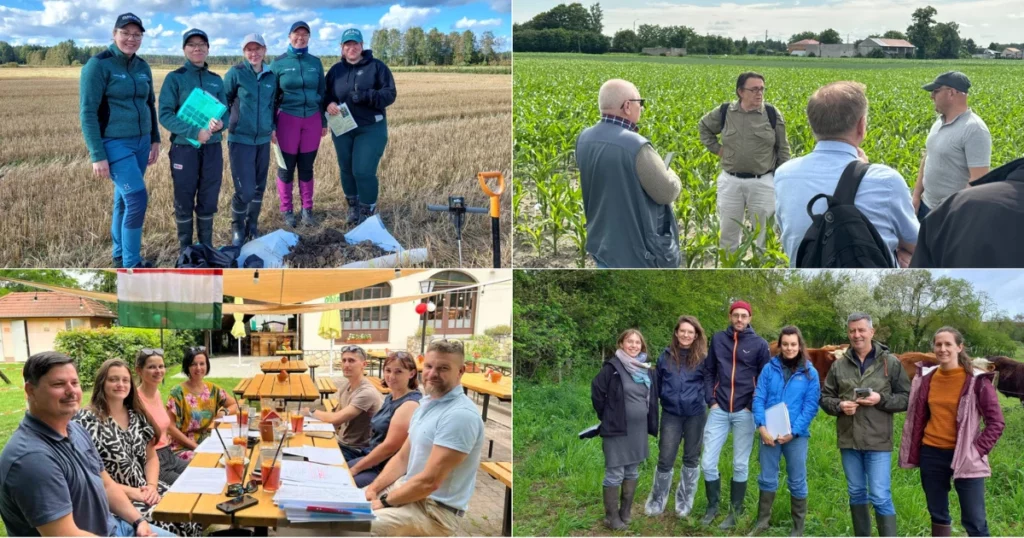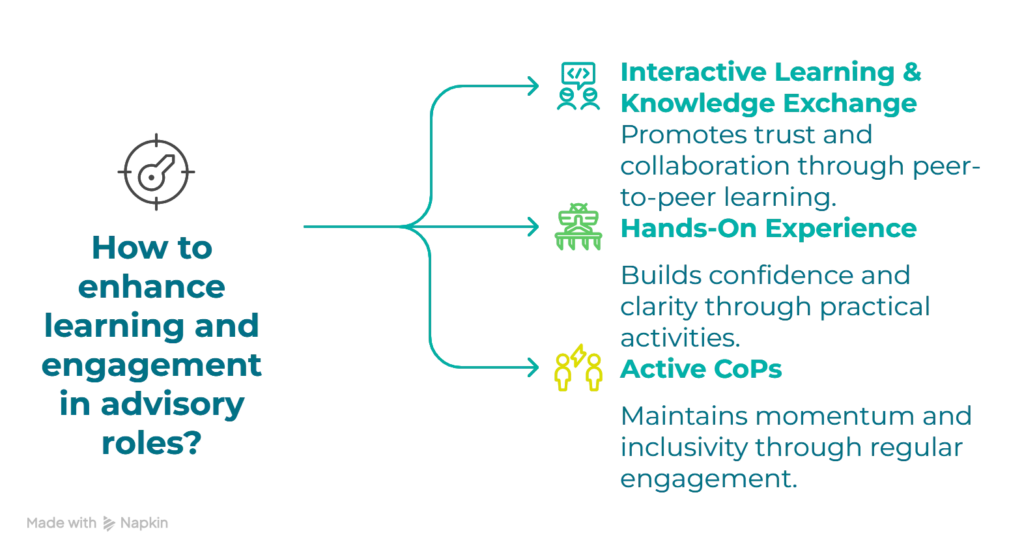
Communities of Practice (CoPs) are at the heart of the ClimateSmartAdvisors project. These groups bring together small teams of advisors interested in climate-smart agriculture. They create a dedicated space for learning, collaboration, and peer exchange. Trained Climate Smart Coaches guide the 260 CoPs established across Europe, which combine training sessions, farm visits, testing of practical tools, and joint reflection. Each group has the flexibility to choose the most relevant themes for their professional needs while benefiting from a common structure and project support.
The first wave of 40 Communities of Practice (CoPs) in Europe has now completed the mid-term evaluation surveys and reports, and is over halfway through their two-year cycles. Although the results are preliminary, they offer valuable insights into how CoPs function and what makes them effective. Three key lessons stand out:
1) The power of interactive learning and knowledge exchange
The CoP model demonstrates that advisors prefer peer-to-peer learning to traditional top-down approaches. Sharing expertise, practical insights, and problem-solving strategies with colleagues builds trust, reduces professional isolation, and boosts motivation. Multi-actor groups, where advisors from different backgrounds collaborate, were especially valued for providing more comprehensive perspectives on complex challenges in climate-smart agriculture.
2) Hands-on experience matters most
Participants consistently ranked practical learning as the most useful aspect of CoP participation. Farm visits, demonstrations, and real-world case studies provided advisors with tangible examples to apply to their work. Tools such as soil diagnostics and greenhouse gas calculators were most effective when used alongside visible demonstrations. This combination of practical methods and peer exchange helped advisors translate abstract climate challenges into concrete solutions that could be implemented at the farm level and shared with farmers with confidence.
3) Keeping CoPs active and engaged
Strong organization and communication are essential for maintaining CoPs. Regular meetings, brief online check-ins, and occasional in-person gatherings maintain momentum and foster trust. Advisors emphasized the importance of clear documentation, digital tools for ongoing communication, and interactive session formats. Tangible outputs, such as advisory booklets, help demonstrate progress. Success also depends on having clear goals, sharing ownership of agendas, and having inclusive group dynamics that ensure everyone contributes.
In summary, the initial experiences of ClimateSmartAdvisors’ CoPs demonstrate that interactive learning, practical knowledge, and robust group dynamics are essential for developing advisory capabilities. By combining peer exchange, hands-on methods, and effective organization, the CoPs have proven to be a powerful model for supporting advisors in guiding the transition to climate-smart agriculture across Europe.

Learn more about CoPs in this video:
